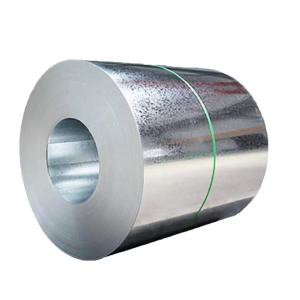Chemical Composition (%) of 321H Stainless Steel Plate
| Carbon | Silicon | Sulfur | Phosphorus | Chromium | Titanium | Manganese | Nickel | Nitrogen |
| 0.04-0.14 | 0.75 | 0.03 | 0.045 | 17.0-19.0 | 4 x (C + N) min.-0.70 max. | 2.00 | 9.0-12.0 | 0.10 |
Mechanical Properties of 321H Stainless Steel Plate
|
Yield Strengtd 0.2% Offset |
Ultimate Tensile Strength |
Elongation in 2 in. |
Hardness | ||
| psi (min.) | (MPa) | psi (min.) | (MPa) | % (min.) | (max.) |
| 30,000 | 205 | 75,000 | 515 | 40 | 217 Brinell |
Physical Properties of 321H Stainless Steel Plate
| Density lb/inᶟ | 0.286 |
| Density g/cmᶟ | 7.920 |
| Melting Range | 2550-2635°F/1398 – 1446 °C |
| Thermal Conductivity at 212°F (100°C) | 9.3 BTU/hr/ft²/ft/°F |
| Thermal Conductivity at 212°F (100°C) | 16.0 W/m-°K |
| Electrical Resistivity | 72 Microhm-cm at 20°C |
Alloy 321 (UNS S32100) is titanium stabilized austenitic stainless steel plate with good general corrosion resistance. It has excellent resistance to intergranular corrosion after exposure to temperatures in the chromium carbide precipitation range of 800 – 1500°F (427 – 816°C). The alloy resists oxidation to 1500°F (816°C) and has higher creep and stress rupture properties than alloys 304 and 304L. It also possesses good low temperature toughness.
Alloy 321H (UNS S 32109) stainless steel plate is the higher carbon (0.04 – 0.10) version of the alloy. It was developed for enhanced creep resistance and for higher strength at temperatures above 1000oF (537°C). In most instances, the carbon content of the plate enables dual certification.
Alloy 321 stainless steel plate cannot be hardened by heat treatment, only by cold working. It can be easily welded and processed by standard shop fabrication practices.
If you are interested in other Stainless Steel Plates/Sheets, please click 302, 303, 304, 304L, 304H, 309, 309S, 310, 310S, 310H, 316, 316L, 317/317L, 317LMN, 321, 321H, 330, 347, 347H, 904L, 403, 405, 409, 410, 410S, 410/HT, 416, 416HT, 420, 422, 430, 440C, Duplex 2205, Duplex 2304, Duplex 2507.
Get In touch with



